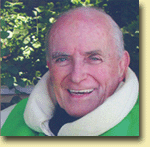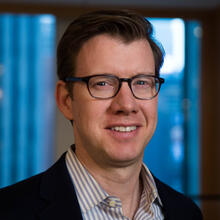What does this study say about what you have called the "Catholic imagination?
The Catholic imagination is the substratum, the glue which holds the Catholic community together. It also provides the identity on which Catholics finally fall back on when asked what it means to be a Catholic. [The study reveals that] the stories and images are more important than the rules, which are not thereby unimportant.
It is frequently said that the church is polarized, but you write that polarization actually doesnt exist. Can you explain?
Ive also said by way of illustration that just as the Commonweal does not speak for all Catholics, neither does First Things--though the point of view of both is important. Catholics like most Americans (and most humans) are not ideologists. Rather most of them seek a middle ground on which to stand. The leadership is not happy with this specification of the terms on which people are Catholic but the leadership has lost much of its credibility.
You write that the church always has been, always will be in deep crisis. What do you mean?
The Church is necessarily in crisis because from top to bottom it is composed of human beings, men and women who make mistakes, who have flaws, who are not always wise. Therefore ecclesia semper reformanda--the Church must always be reformed. Usually the reform attempts are resisted. Sometimes the reforms must be rejected. Such a situation always creates crises. The leaders must be very sensitive in their response to the demand for reform. Sometimes, however, they resist reform completely and the result is not crisis but chaos.
Invoking Yves Congar, you note that are two components within the church--the community and the institution. Today these two components seem to be in tension. What can be done to bring them together?
Again there is always tension between the leaders and the followers because each group has a different perspective. Sometimes the leaders think that they can ignore the followers because they (the leaders) think they possess all truth and total power. Sometimes the followers think that the leaders do not know what theyre talking about. Essential to bringing institution and community closer together are leaders who have the ability to listen humbly and learn--and listen not merely to those who already agree with them.
The study reports that young Catholics have a low level of interest in their faith. What does this mean for the future?
In his study of the ministry to teenagers of various denominations, Professor Christian Smith was surprised that, despite the enthusiasm of Catholic teens, the Catholic church is less likely than others to devote personnel and money to teenage ministry. The Church appears not to like them very much. There are no longer young priests assigned to work with teens and most of the newly ordained priests are old enough to have no patience with teens.








